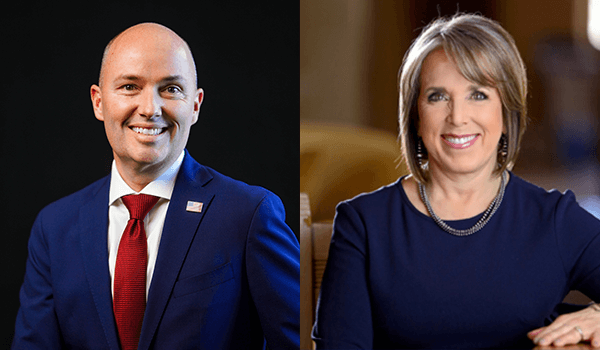Banks that identify fraudsters increase loyalty, retain more defrauded customers than others who never were compromised

Financial institutions are constantly fighting off fraudsters who steal money from customer accounts. Banks spend millions each year to figure out who was responsible and keep customers from leaving; however, in most cases it’s nearly impossible to figure out who committed the fraud.
Should banks continue pouring resources into investigations that don’t lead to accountability? The short answer is yes, according to Vamsi Kanuri, the Viola D. Hank Associate Professor of Marketing at the University of Notre Dame’s Mendoza College of Business. In a new research study, Kanuri found that if a bank can’t tell a customer who was responsible for a fraudulent transaction, that customer loses trust, closes their account and leaves the bank.
In “Mitigating Churn After Online Financial Fraud: The Value of Blame Attribution,” published in the forthcoming issue of the Production and Operations Management journal, Kanuri examined data from a major U.S. bank covering 422,953 customers over five years. The study showed that a lack of clear answers from the bank resulted in a big increase in people who had experienced fraud leaving — 40 percent more than those who were never defrauded in the first place.
Kanuri, along with Mendoza’s Sriram Somanchi and Rahul Telang from Carnegie Mellon University, showed that, surprisingly, when the bank catches the real fraudster, not only do customers feel more secure, but also 62 percent fewer leave compared with customers who never experienced fraud at all.
“Intuitively, we might expect that any instance of fraud would harm the relationship between a customer and their bank, even if the case was resolved,” Kanuri said. “After all, fraud is a serious violation of trust, and you would think it would automatically push customers closer to the exit. Yet we show the opposite in cases of correct attribution: Not only do customers stay, but they also display higher levels of loyalty than those untouched by fraud. This is a real-world demonstration of the service recovery paradox, where effective handling of a failure can make customers more loyal than if no problem had occurred.”
Financial institutions are increasingly faced with sophisticated phishing scams where perpetrators create mass email campaigns that redirect users to a fake bank login page to collect their login credentials. Fraudsters can even circumvent state-of-the-art two-factor authentication checks by taking control of users’ phones through SIM jacking and inheriting the users’ geographic identity using geo-spoofing techniques.
A bank that fails to catch fraudsters creates an immediate, lasting impression of unreliability, though it fades over time. On the other hand, a bank that successfully catches fraud and protects its customers earns a stronger, more permanent reputation for competence. Kanuri said this demonstrated that “how fraud is resolved shapes not only immediate reactions, but also the long-term relationship between banks and their customers.”
Not all customers react the same way.
The data revealed that factors such as tenure and how often customers interact with their bank influence their responses. Customers with shorter relationships and fewer touchpoints are more likely to leave a bank if a fraudster goes unidentified, since they don’t have a long history of trust to rely on. Longer-tenured customers or those who engage more frequently with the bank are more forgiving.
“Interestingly, when the bank successfully identifies a fraudster, these differences largely disappear,” Kanuri said, “since the act of identifying the culprit provides enough reassurance to restore trust across the board.”
The data, which included customer demographics, account activity, tenure, balances, interactions with the bank and instances of fraud, as well as a follow-up experiment confirmed that what really drives customer behavior after fraud is how much they believe in the bank’s ability to safeguard their accounts. When fraudsters are not identified, this undermines trust, prompting people to withdraw money, move funds elsewhere and eventually close their accounts. When they are identified, the opposite happens. It restores confidence, encourages loyalty and sometimes even strengthens the customer-bank relationship.
The results provide evidence in support of reforms proposed by the U.S. Treasury Department to increase transparency in ACH transactions and require money-transfer apps to report them. Such changes would make it easier for banks to trace perpetrators, assign blame and reduce customer defection. Beyond the financial upside, these reforms could also reinforce trust in financial institutions by making service recovery more effective.
“The payoff of fraud investigations comes in the form of loyalty, not direct financial recovery, which is not the way most people in the industry are accustomed to thinking about it,” Kanuri said.
Contact: Vamsi Kanuri, 574-631-2399, vkanuri@nd.edu
Latest ND NewsWire
- Alumni Association and YoungND honor 2025 Domer DozenThe Notre Dame Alumni Association announced its 2025 Domer Dozen cohort, honoring 12 graduates ages 32 and younger for excellence in their contributions in learning, service, faith and work — the core pillars of the association’s mission.
- Faculty receive prestigious early career awards from National Science FoundationDuring the 2024-25 academic year, four researchers in the University of Notre Dame’s Colleges of Engineering and Science received early-career awards from the National Science Foundation.
- Notre Dame School of Architecture poised for global leadership through historic investmentThe $150 million gift represents an unprecedented commitment in the 160-year history of American architectural education. In recognition of this landmark gift, the school will be renamed the Matthew and Joyce Walsh School of Architecture at Notre Dame.
- Notre Dame to host summit on AI, faith and human flourishing, introducing new DELTA frameworkThe Institute for Ethics and the Common Good and the Notre Dame Ethics Initiative will host the Notre Dame Summit on AI, Faith and Human Flourishing on the University’s campus from Monday, Sept. 22 through Thursday, Sept. 25. This event will draw together a dynamic, ecumenical group of educators, faith leaders, technologists, journalists, policymakers and young people who believe in the enduring relevance of Christian ethical thought in a world of powerful AI.
- Notre Dame Democracy Initiative hosts bipartisan conversation with Western state governorsTwo Western state governors known to work across the aisle on policy issues such as water, housing and energy will visit the University of Notre Dame for a fireside chat about how Western state pragmatism can serve as a model for the country to overcome polarization.
- In new research, Roy Scranton explores climate change and the limits of human progressIn his most recent book, “Impasse: Climate Change and the Limits of Progress,” Scranton, an associate professor of English, defines the impasse he sees as “not only political and institutional, but cognitive, existential and narrative” and asserts that the only path forward is through embracing what he terms ethical pessimism. “A lot of people confuse pessimism with nihilism, apathy and despair,” Scranton said. “But pessimism is actually about recognizing our limits, letting go of unrealistic goals, finding solidarity in the fact of human suffering and doing what you can now, not in some utopian future.













